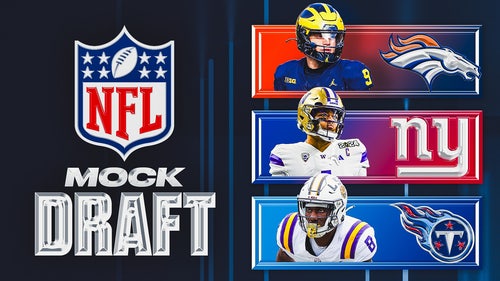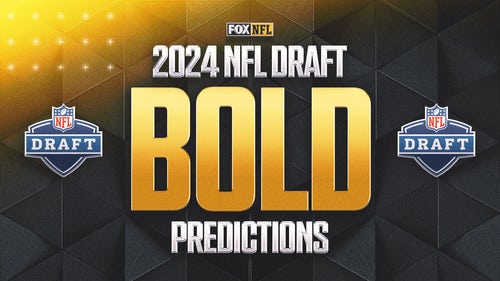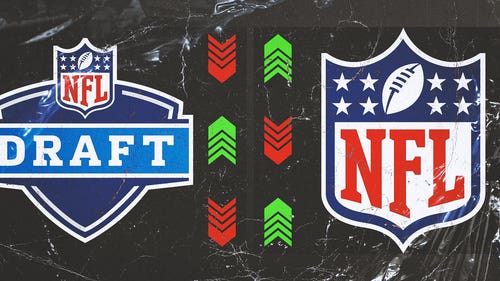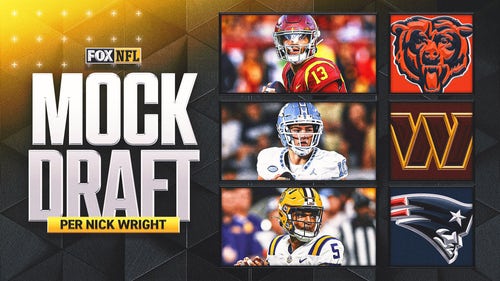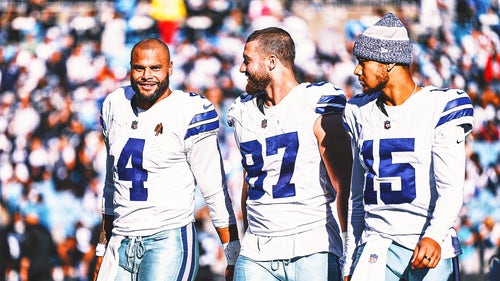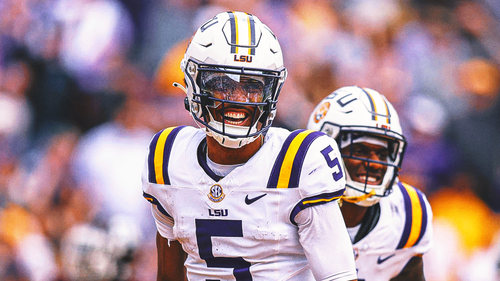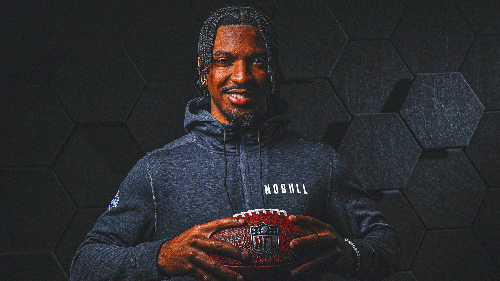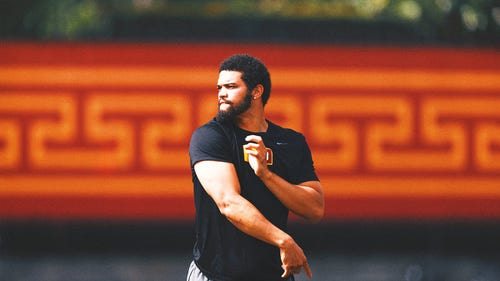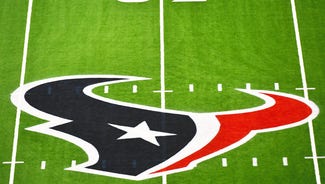
Replay plays major role in Dallas
How much has replay changed the National Football League?
Just ask the Dallas Cowboys. Then, for good measure, ask the New York Giants.
Both teams were witness to just how much, during an incredible 29-24 win by the New York Giants over the Dallas Cowboys Sunday during Week 8 of the NFL season.
You've got to hand it to the referee Scott Green, who ultimately made the right call in replay with input from the replay official Carl Madsen, that took away a potential game-winning 37-yard touchdown pass from Tony Romo to Dez Bryant with just six seconds remaining. The touchdown would have given Dallas a much needed, likely victory.
Here was the situation: Dallas had the ball, second-and-5 from the Giants' 37-yard line with 16 seconds remaining. New York led 29-24.
Romo threw it up and Bryant split two defenders to make an incredible, leaping catch that was ruled a touchdown on the field. However, when the play went to review, the replay official saw what we all saw, that Bryant's fingers were the first thing to hit and they were out of bounds, right before his palm hit in bounds.
But, and this is a big but, even if his palm had hit in bounds first before his fingers hit out of bounds, it still wouldn't have a been catch. In order to complete a catch, "a player must have complete control of the ball and have both feet or any other part of his body, other than his hands, completely on the ground in bounds."
As the legendary John Madden might have said, one hand does not equal two feet. And since a part of that hand hit out of bounds before any other body part, it made the pass incomplete and may have changed the fortunes of both teams.
Think back to 1998, in the final week of the regular season when the New York Jets' Vinny Testaverde was ruled to have scored at the end of the game, which knocked Seattle out of the playoffs and ultimately got all of the Seahawks coaches fired.
Well, upon further review, he didn't score. He was clearly short. But guess what the NFL didn't have in 1998: instant replay. If it did, the call would have been reversed, Seattle would have made the playoffs, and the coaches wouldn't have been fired.
So you ask, how important is instant replay?
It can be the difference in winning and losing. It can be the difference in making the playoffs and not making the playoffs. It can be the difference in keeping your job and getting fired.
Just ask the Cowboys … and the Giants.
Overall, I thought Week 8 was a real turning point for the officials. In reality, it was only Week 5 for them, since they replaced the replacement officials, who were used the first three weeks.
To me they have rounded into form and they got a lot of big calls right Sunday. Let's a look at a couple of them.
THE GAME: Washington at Pittsburgh
THE SITUATION: Washington had the ball, third-and-4 at the Redskins' 43-yard line with 4:30 left in the second quarter. Pittsburgh led 17-6.
THE PLAY: Washington quarterback Robert Griffin III flipped the ball off to Joshua Morgan on a reverse, who was running to the right as Griffin headed out to the left side, becoming a receiver. Morgan stopped and attempted a pass to Griffin that was incomplete. However, Griffin was called for offensive pass interference.
MY TAKE: There were four parts to this play that the officials had to consider.
First, they had to determine whether Griffin was eligible to be down field and be the first to touch the pass. The rule states that if Griffin took the snap from under center, he would have been considered to be ineligible. However, since he took the snap in the shotgun formation, he is considered to be a back and, therefore, can go down field.
Second, there was question whether Pittsburgh defender Ike Taylor arm-barred Griffin and if he should have been called for defensive pass interference. Taylor did stick his arm out, but the contact was not enough to "significantly hinder" Griffin's ability to catch the pass.
The third was the extension of the arms and the push off by Griffin, which created the separation and allowed him to attempt to make the catch. This was correctly called offensive pass interference under the category of "push off with separation."
And finally, the officials correctly determined that the hit on Griffin was not an illegal hit on a defenseless receiver by Pittsburgh's Ryan Clark. Clark did not lead with the crown of his helmet and did not make any helmet-to-helmet contact.
The officials had four rulings to make and got them all right.
THE GAME: Atlanta at Philadelphia
THE SITUATION: Atlanta had the ball, second-and-10 at the Falcons' 32-yard line with 10:14 left in the third quarter. Atlanta led 24-10.
THE PLAY: Atlanta quarterback Matt Ryan completed a pass to Julio Jones for 37 yards. However, Atlanta receiver Roddy White was called for a offensive pass interference against Philadelphia defender Nnamdi Asomugha, but after the officials conferred, the flag was picked up.
MY TAKE: This was a great job of communication between the head linesman and the side judge. The linesman called the pick on White, but the side judge came in and questioned where the pick occurred. By rule, in order for this to be a foul, the pick must have occurred more than one yard beyond the line of scrimmage, which in the rule book is referred to as the expanded neutral zone. This pick happened right at the line of scrimmage, and therefore, is not a foul.






































































































































